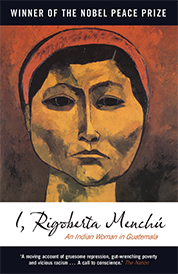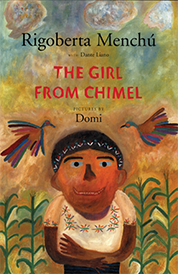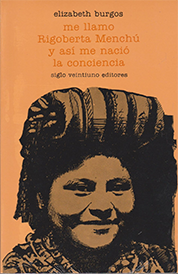Rigoberta Menchú has distinguished herself as a leader in the fight for the human rights of indigenous peoples, a vital mission for which she was awarded the Nobel Peace Prize in 1992.
From a young age, Rigoberta Menchú, a member of the K'iche' ethnic group, experienced the injustices, discrimination, racism, and exploitation that have kept thousands of indigenous people in extreme poverty in her native Guatemala. Poverty forced her to seek work in the nation's capital to support her parents and siblings, but it was within indigenous communities that she learned to organize and advocate for rights.
During the period of armed conflict in Guatemala, she suffered devastating personal losses: her father, Vicente Menchú, perished in the burning of the Spanish Embassy; her mother, Juana Tum, was disappeared; and her brother, Víctor Tum, was killed by the Guatemalan military.
These tragedies deepened her involvement in advocating for the rights of indigenous and peasant communities, which led to political persecution and her eventual exile. In 1988, she returned to Guatemala, where she was detained. Her release was secured through the efforts of Nineth Montenegro, the Grupo de Apoyo Mutuo organization, and the support of thousands of university students.
She has participated in annual sessions of the United Nations Commission on Human Rights, the Commission on the Prevention of Discrimination and Protection of Minorities, and was a member of the UN Working Group on Indigenous Populations.
In 1979, she founded the Committee for Peasant Unity and the Guatemalan Unified Representation of the Opposition, which she led until 1992. In 1993, she was named Goodwill Ambassador for the International Year of Indigenous Peoples at the World Conference on Human Rights in Vienna, and in 1996, she was appointed UNESCO Goodwill Ambassador.
She is the founding president of the Rigoberta Menchú Tum Foundation—formerly the Vicente Menchú Foundation—through which she supports the most vulnerable indigenous communities with educational, productive, and infrastructure projects. The foundation also advocates for justice for victims of genocide, discrimination, and racism in Guatemala.
She has received numerous national and international awards, including the UNESCO Education for Peace Prize (1990), the Legion of Honor in the rank of Commander from France (1996), the Prince of Asturias Award for International Cooperation (1998), and over 30 honorary doctorates from universities worldwide, including the University of San Carlos in Guatemala.
Rigoberta Menchú is the author of several books, including *"I, Rigoberta Menchú: An Indian Woman in Guatemala"* (1983), translated into 12 languages and recipient of multiple international accolades, *"The Girl from Chimel"* (1998), and children's books such as *"Li Mi’n: A Girl from Chimel"* and *"The Honey Jar."*
Her commitment to Guatemala was evident in her active participation in the signing of the peace agreements between the Guatemalan National Revolutionary Unity and the Government of Guatemala. She was awarded the Nobel Peace Prize in 1992 at the age of 33, making her the youngest recipient of this prestigious honor.







